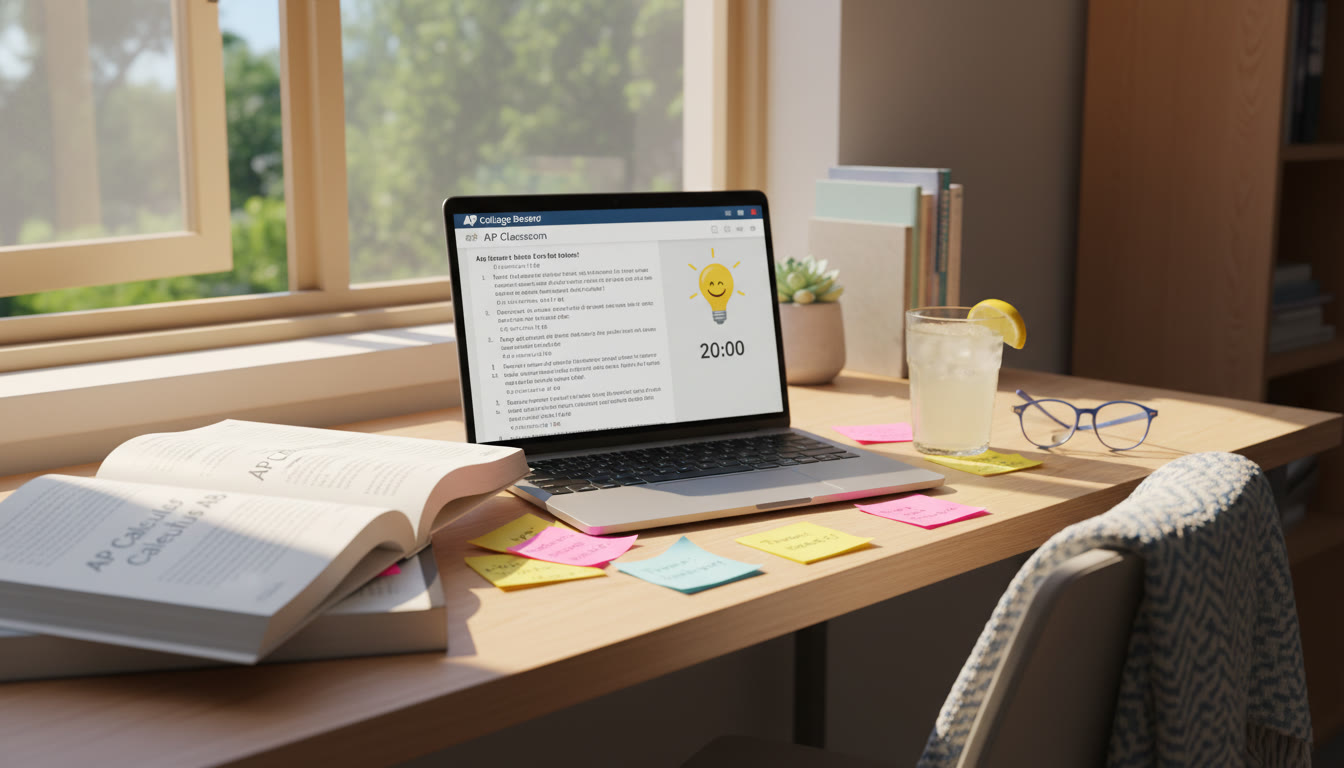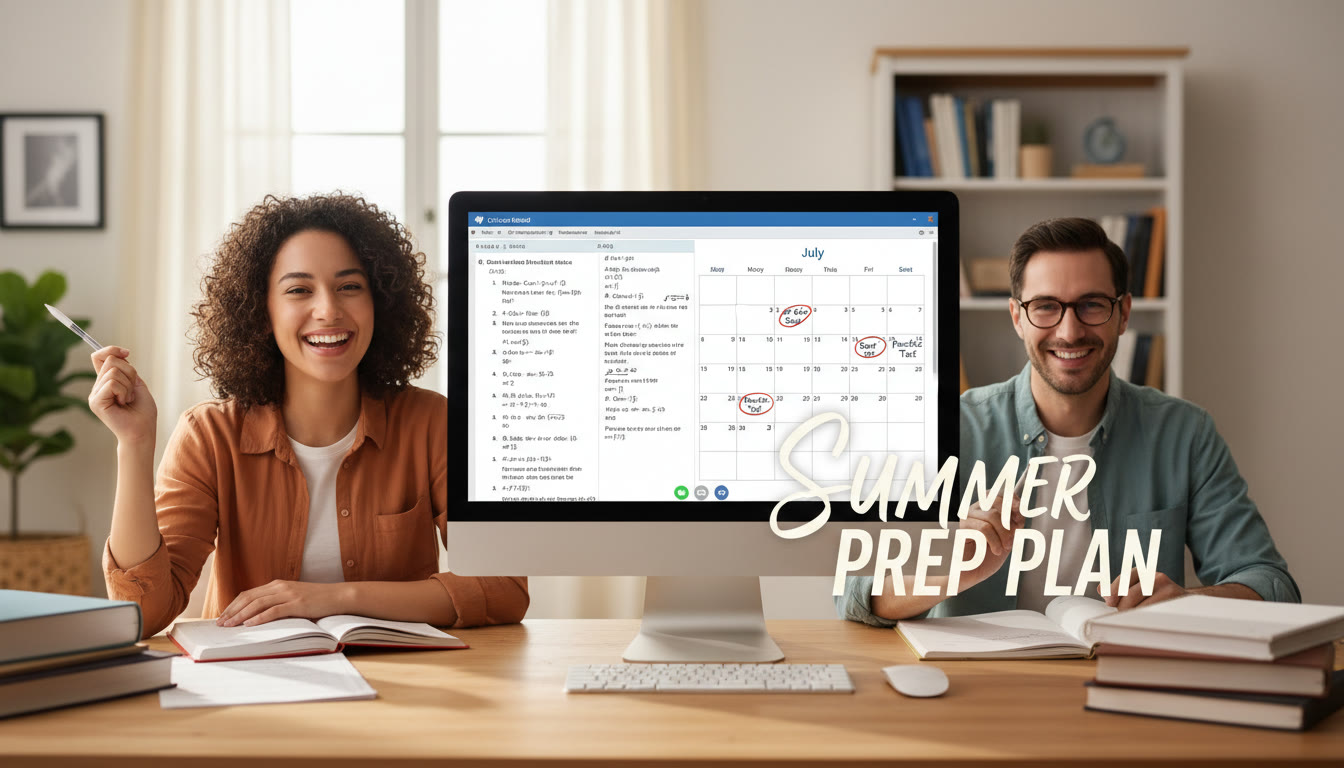AP vs SAT: Summer Planning Which Pays Off More?
Why this question matters (and why summer is the secret weapon)
Imagine a quiet house on a July morning: the only sounds are a sibling s laugh next door and the soft click of flashcards. For many high school students and families, summer becomes a rare window of uninterrupted time perfect for building momentum toward big goals like AP exams or the Digital SAT. But with limited weeks and competing priorities (jobs, camps, rest, family), the choice between spending your summer on AP prep or SAT prep can feel like a high-stakes decision.
This post walks you through the trade-offs, the tangible benefits, and the smartest ways to spend your summer so that your effort delivers the best return. I’ll share practical calendars, a side-by-side comparison, real-world examples, and an easy-to-follow plan you can tailor depending on grade, target colleges, and personal strengths.

AP exams and the Digital SAT: a quick, clear comparison
Before we decide what to focus on, let s clarify what each path really offers.
Advanced Placement (AP)
- Purpose: College-level subject exams offered by the College Board. High scores can earn college credit or advanced placement at many colleges.
- Format: Subject-specific exams (e.g., Calculus AB, Biology, U.S. History). Most include multiple-choice and free-response sections designed to assess depth of knowledge and writing or problem-solving skills.
- Timing: AP exams are administered once a year in May. Preparation is typically spread across the school year, with intensive review in spring and summer for some students.
- Payoff: Can reduce college costs, allow skipping introductory courses, and strengthen applications if scores align with a student s intended major.
Digital SAT
- Purpose: A standardized test measuring evidence-based reading, writing, and math skills used in college admissions (Digital SAT is the College Board s current format).
- Format: Computer-based, adaptive test with shorter sections and a focus on problem solving and evidence-based reading. No penalty for guessing.
- Timing: Offered several times per year. Students often take it in junior fall or spring and sometimes again in senior year.
- Payoff: A strong SAT score remains valuable for admissions and scholarship opportunities, especially at schools that consider standardized testing.
Which pays off more? Factors families should weigh
Pays off isn t only about money it s about time, academic positioning, stress, and how the result aligns with your college goals. Here are the key lenses I use when helping families choose.
1. College goals and admissions priorities
If a student is aiming for selective colleges that emphasize rigorous coursework, strong AP choices aligned to the intended major can send a powerful signal. A transcript full of meaningful AP courses and strong scores demonstrates mastery and willingness to challenge oneself.
Conversely, if a student s profile needs a standardized test boost (for example, to stand out in large applicant pools or to qualify for merit scholarships), investing time in the Digital SAT could deliver more immediate, measurable impact.
2. Financial payoff
AP credit can translate directly into cost savings by allowing students to skip introductory college classes or graduate earlier. The exact dollar value depends on the college s AP policy and how the credits are applied, but this is a real, calculable benefit in many cases.
The SAT doesn t reduce tuition directly, but higher scores can unlock merit scholarships that do. So the financial payoff of SAT prep is often indirect but sometimes substantial.
3. Time to meaningful improvement
Students typically see faster measurable gains on the SAT with focused, targeted practice because the test assesses test-taking strategies and problem types that can be drilled efficiently. Many students can raise scores in a few months with a disciplined plan.
AP courses require sustained content mastery and often deep conceptual understanding; summer can be used for review, project-based acceleration, or to prepare for a course you ll take in the fall (e.g., self-study to place into AP Physics). The timeline for seeing results from AP work tends to be longer and builds across the school year.
4. Personal strengths and stress
If a student thrives on long-form writing, inquiry, and subject depth AP prep will be more natural and rewarding. If a student performs well under discrete practice and strategy training, the SAT may be an easier place to win big.
Concrete summer scenarios: who should prioritize what
Here are common student profiles and a recommended summer focus.
Rising junior aiming for competitive schools
- Priority: Solid Digital SAT baseline (take a diagnostic) and targeted AP review for subjects that will be on transcript by senior year.
- Why: Juniors need to lock in strong test scores and maintain rigorous coursework. Summer is ideal to build a study rhythm for both.
Rising senior with weak SAT scores and no plan to take AP exams
- Priority: Intensive SAT prep. Use summer to complete a full diagnostic-to-practice cycle and take a test in early fall if possible.
- Why: A focused, short-term investment can produce significant score gains that still matter for admissions and scholarships.
Rising sophomore taking AP next year
- Priority: Summer review and pre-study for the AP course (preview the textbook, build foundational skills, start a reading or problem set habit).
- Why: Entering the course with confidence can affect year-long grades and final AP performance.
Student seeking to save on college tuition
- Priority: Target AP exams in subjects where high scores are likely and would map to college credit. Strategically choose APs based on likely college policies.
- Why: Earning credit can reduce tuition if the college accepts those AP scores.
How to split a 10-week summer for maximum payoff
Below are three adaptable 10-week templates depending on your choice: mostly AP, mostly SAT, or a balanced approach.
Template A AP-First (best for students prioritizing credit or subject depth)
- Weeks 1 3: Diagnostic and weak-point review. Take a content inventory; focus on foundational gaps.
- Weeks 4 7: Deep-dive content blocks. Tackle free-response practice and timed sections relevant to AP format.
- Weeks 8 9: Mixed practice under timed conditions; build an AP-focused study portfolio (practice essays, labs, and annotated notes).
- Week 10: Simulated AP exam and targeted review of mistakes.
Template B SAT-First (best for students needing a score boost quickly)
- Weeks 1 2: Full-length Digital SAT diagnostic; identify top three test weaknesses.
- Weeks 3 6: Focused strategy blocks (evidence-based reading, sentence skills, targeted math topics). Two full-length practice tests mid-cycle.
- Weeks 7 9: Test simulation and review; polishing pacing and mental stamina.
- Week 10: Final simulated test, score target review, and logistics planning for fall test dates.
Template C Hybrid (best when both matter)
- Weeks 1 3: SAT diagnostic + AP content triage (choose one AP subject to prioritize).
- Weeks 4 6: Alternate weeks one week SAT drills, next week AP deep dives.
- Weeks 7 8: Mixed full-length SAT practice and AP FRQ practice.
- Weeks 9 10: Final practice cycles tailored to whichever measure is most urgent.
Example weekly plan (sample week from the hybrid template)
| Day | Morning (60 90 min) | Afternoon (60 90 min) | Evening (30 45 min) |
|---|---|---|---|
| Monday | SAT: Reading strategy drills | AP: Review lecture notes and work problems | Active recall flashcards |
| Tuesday | AP: Focused content study (e.g., ecosystems or calculus concepts) | SAT: Math problem set (targeted topic) | Relaxed reading (nonfiction) |
| Wednesday | SAT: Full section timed practice | AP: Free-response practice | Reflection and error log |
| Thursday | AP: Lab or project work / synthesis | SAT: Practice test review | Short review quiz |
| Friday | SAT: Vocabulary and sentence logic | AP: Peer review of essays or group study | Mindfulness or light exercise |
| Saturday | Long practice session (SAT or AP alternate) | Project work / hobby (recover and stay balanced) | Family time |
| Sunday | Rest or light review | Plan next week | Early bedtime |
How to measure progress without losing your summer
Progress is motivating when it s measurable. Use these three key metrics:
- For SAT: Periodic full-length practice tests, scaled score improvement, and pacing accuracy.
- For AP: Graded practice FRQs, rubric alignment, and chapter mastery checks.
- For both: An error log and weekly reflection to convert mistakes into study targets.
Common summer mistakes and how to avoid them
- All or nothing: Burning out in June and being exhausted by August. Solution: Build micro-rests and non-study goals.
- Ignoring diagnostics: Studying randomly wastes time. Solution: Start with a real diagnostic to target the highest-leverage work.
- Over-relying on passive review: Re-reading notes feels productive but isn t. Solution: Use active recall, mixed practice, and timed simulations.
- Skipping strategy for SAT: Content alone won t fix timing and question approach. Solution: Combine content review with test strategy drills.
How families can support students this summer
Parents play a crucial role: from building a supportive routine to helping students prioritize sleep and mental health. Here are focused, practical ways families can help.
- Provide structure, not micromanagement. Agree on weekly check-ins that are coaching conversations, not interrogations.
- Encourage balanced days exercise, social time, and hobbies matter for retention and motivation.
- Help with logistics: registration, test dates, and arranging quiet study space.
- Celebrate small wins: a better diagnostic score, a completed FRQ, or a productive study streak.
Where personalized help fits and why it often accelerates results
Personalized tutoring and tailored study plans can be game-changers, especially in a condensed timeline like summer. A good tutor helps with:
- Targeting high-leverage weaknesses instead of wasting time on what you already know.
- Designing realistic, measurable practice cycles and keeping motivation high.
- Offering expert feedback on AP free-response answers or SAT essay-style questions (where relevant), and fine-tuning approach under timed conditions.
For students exploring tutoring, services like Sparkl s personalized tutoring offer 1-on-1 guidance, tailored study plans, expert tutors, and AI-driven insights that help turn a long summer into an efficient, growth-focused sprint without sacrificing rest or family time. When used well, personalized support amplifies gains while reducing wasted effort.
Putting it all together: decision checklist
Use this simple checklist to decide how to allocate your summer hours.
- Do you need college credit or to place out of intro classes? Prioritize AP.
- Do you need a measurable score boost for admissions or scholarships? Prioritize the SAT.
- Are you entering an AP course next fall and worried about being behind? Prioritize pre-studying that AP subject now.
- Is time limited and both matter equally? Use the hybrid template with a diagnostic-driven split.
Example conclusion for three students
Student A (junior, aiming top schools): Use the summer to set a strong SAT baseline and maintain one AP deep-dive. Student B (senior with low SAT score): Prioritize concentrated SAT prep for an early fall retake. Student C (sophomore heading into AP Biology): Spend the summer building content mastery so the school-year AP performance is strong.
Final practical tips
- Start with a diagnostic for both AP and SAT. Data drives decisions.
- Block time: short, focused sessions beat marathon cram sessions.
- Build a small, high-quality practice set: 2 3 targeted drills per day is often more sustainable than marathon days.
- Sleep and exercise are part of prep don t skip them; they make learning stick.
- Consider at least a few sessions of personalized tutoring if you want to accelerate gains efficiently think of it like hiring a coach for your most important season.

Parting thought
There s no one-size-fits-all answer to whether AP or SAT prep pays off more. The real question is: what payoff matters most to your student right now? Is it tuition saved, a higher test score, stronger application signal, or simply the confidence that comes from mastery? Use diagnostics, honest self-assessment, and a targeted plan to make your summer count.
If you want, I can help you create a customized 10-week summer calendar based on your student s grade, current diagnostics, and college goals plus suggest where a short block of 1-on-1 tutoring might produce the biggest returns. Summer is short, but smart summer work pays dividends for years.
Good luck and make room for at least one day this summer that isn t about testing. Learning grows fastest when life grows too.














No Comments
Leave a comment Cancel